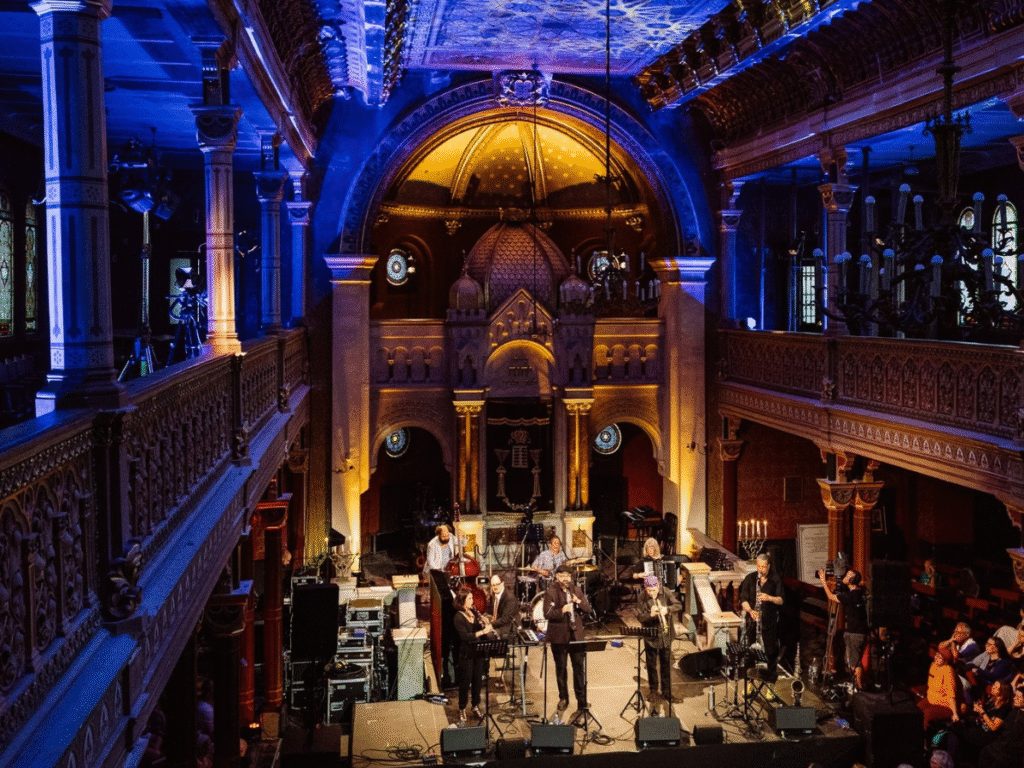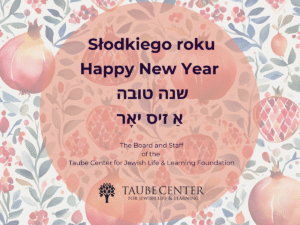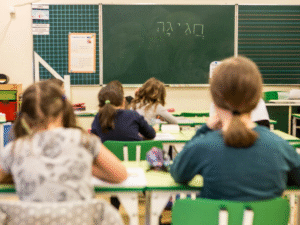The 34th edition of the Jewish Culture Festival in Kraków was one of the most vibrant and meaningful cultural gatherings of the year — and the Taube Center was proud to co-organize a series of programs that explored the intersection of Jewish heritage, memory, and urban transformation.
Over the course of a week, we joined international scholars, educators, and community members in rich conversations, guided walks, and interactive workshops, all set against the backdrop of Kraków’s historic Jewish districts. These events reflected our ongoing commitment to dialogue, education, and the ethical stewardship of heritage.
Here are the highlights of our contributions to this year’s Festival:
1. Panel Discussion: Stewardship vs. Commercialization – Jewish Heritage in a Tourist-Oriented Urban Space
This panel addressed one of the most pressing challenges facing Jewish heritage sites today: how to preserve and promote cultural legacy in the face of commercialization and mass tourism. Drawing on insights from the Taube Center’s 2024 publication Field Guide to Jewish Krakow, the panelists explored the changing landscape of Kraków — once a neglected post-communist city, now one of Central Europe’s top tourist destinations.
The discussion examined how Jewish sites in Kazimierz and beyond have become powerful touchstones for historical engagement, while also facing threats from real estate development, branding, and cultural appropriation. The panelists advocated for practices that maintain authenticity, respect sacred spaces, and engage both local and global communities in a responsible way.
2. Curated Walking Tour: Kazimierz — Past and Present
Can a neighborhood be both a tourist hub and a place of authentic memory?
Our guided walk through Kazimierz — Kraków’s historic Jewish quarter — examined the layered history of this district, which has undergone a remarkable transformation over the past three decades. Once a neglected area, Kazimierz is now a central attraction in Poland’s cultural landscape.
Participants explored how Jewish heritage, dating back to the 14th century, has shaped Kazimierz’s development and identity. The walk offered a critical lens on how this legacy is preserved, presented, and sometimes challenged in a district where memory and modernity coexist side by side.
3. Walking Tour: Jewish Heritage in a Tourist-Oriented Urban Space — Podgórze
This special tour took participants through the district of Podgórze — the site of the former Kraków Ghetto during Nazi occupation and a place marked by profound historical trauma. Today, Podgórze is also a growing tourist destination.
Led by an expert contributor to the Field Guide to Jewish Krakow, the tour explored how memory is maintained, interpreted, or sometimes erased in public space. The walk also addressed the ethics of “dark tourism” and the responsibilities we carry when engaging with sites of suffering and resistance.
4. Interactive Workshop: How to Read a Synagogue? Jewish Heritage in Urban Space
Held in partnership with the Galicia Jewish Museum, this interactive workshop invited participants to explore the symbolic, architectural, and communal roles of the synagogue in Jewish tradition.
The session considered:
- how religious space is organized and understood in Judaism,
- the differences and parallels between Jewish and Christian concepts of the sacred,
- how former synagogues and prayer houses are repurposed today in Kraków and other cities,
- and how built heritage can serve as a powerful educational tool.
Led by experienced educators from the Taube Center and Galicia Jewish Museum, the workshop also featured examples from museum exhibitions and engaged participants in discussion around preservation and meaning-making in contemporary urban settings.
We are deeply grateful for every person who joined us — for your curiosity, your insights, and your presence. The atmosphere throughout the Festival was electric, and the level of engagement exceeded all expectations.
Photos: Edyta Dufaj













